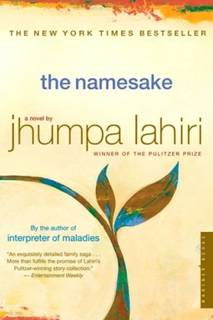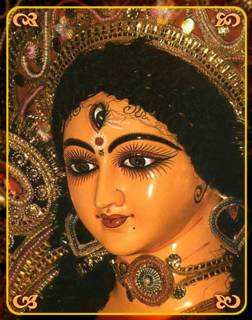
By the time i finished reading The Namesake, i had a heavy heart, a feeling that i can't really describe - maybe because i felt so much for and like the characters of this beautiful story. The author has amazing sensitivity towards people trying to find meaning in their lives in situations, circumstances and surroundings that are alien to them.
It started with my insatiable apetite for all things tabloid and bollywood. I was intrigued by the announcement of Mira Nair's next production based on Jhumpa Lahiri's book - The Namesake. I had heard about the author but had never read any of her books. I decided to read this one and i'm glad that i did.
This is the story of Indians who have uprooted themselves from their native land and are trying to adjust to new ways of surviving in an alien country. It's also the story of the second generation of the immigrants which struggles to find a balance between two radically different cultures, conflicting values and ways of living.
Ashoke and Ashima find themselves holding onto their roots, their only way of asserting their identity and be in touch with their past in far away streets of Calcutta. Their children Gogol and Sonia are caught between the world at home which is steeped in the Bengali culture and the world outside which is radically different. Gogol hates his name which he thinks is absurd-stupid-inconsequential so much so that he changes it as soon as he gets the opportunity. He has no clue about how much this name means to his father.
Lahiri knows her protagonists and their emotional and cultural complexities like the back of her hands...and this is what touches me the most personally. I relate to the characters so much that i can almost visualise my parents, me and my brother instead of the characters in the book.
Having been brought up as a Probashi Bengali (Bengalis living away from their homeland), i have lived and breathed that same zealous attempt at holding onto the bengali culture. The absolute loyalty to all things bengali (bordering on snobbishness sometimes i thought). I was so accustomed to the Bong-Bandwagon that i could imagine without difficulty the get-togethers described in the book, mashis and meshos together playing cards-singing-eating over batches, the kids in one room watching television, mutton curry and luchi, maacher-jhol bhaat, gossping on dinner table untill our hands were dry and yellow...rabindra sangeet, poetry recitation. My parents insistence on my learning to read-write Bangla - and my reluctance towards the same (the last thing i wanted to do was study during my school vacations! but of course i had no other choice!). My mother not wearing anything other than saris (wearing salwaar-kameez would be considered rebellious by our relatives in Calcutta!It's very different for this generation of course!) - a fatalistic approach to life - don't drive too fast, Calcutta this Calcutta that...there is so much more that i can point out that i could relate to! It was as if i was reading out my own story. While i was growing up i sometimes resented this clutching onto bengaliness (an exception being the pujo that i looked forward to every year). I had many arguments with my parents on this issue..tried to show them other ways of thinking and living without any success...What impressed me most was that the author is sensitive enough to describe even the most mundane scenarios...things that we take for granted and never notice but things that are important nevertheless...There were many instances in the story when i would go - oh shit! this is so true! this is what usually happens!
The strange thing is that the same things that i had started detesting or rebelling against when i was younger, i try to hold onto now - but of course never with the same fanatical zeal! I consider myself a very adaptive person - as in i can live without indian food-indian clothes etc etc for days on end without complaining and i am not paranoid about holding onto the bengaliness as the previous generation. Having said that i have also noticed that i appreciate certain aspects of my culture and it will not be far-fetched to say that acceptance of my culture gives me a sense of identity which is becoming increasingly important to me.
Read the review of this book at http://mostlyfiction.com/world/lahiri.htm




